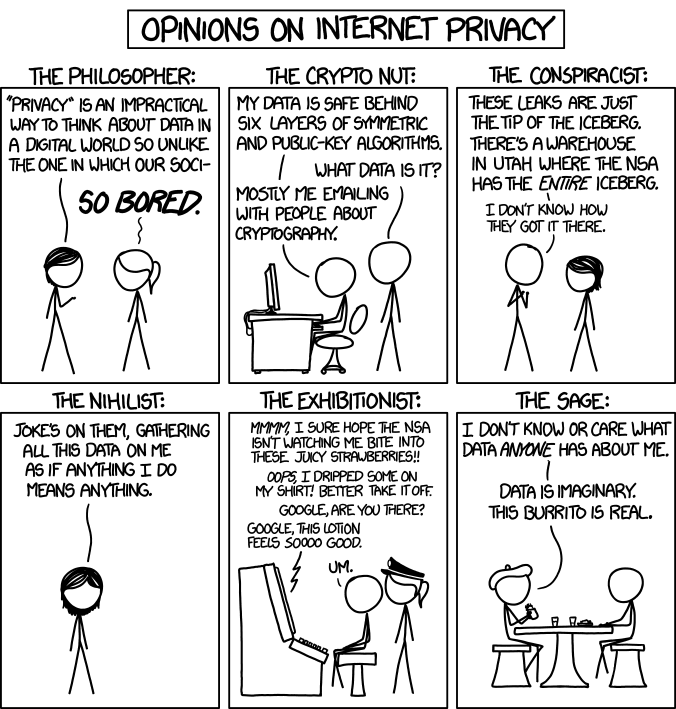The Death of Demographic Marketing and the Future of Social Media
There has  been a lot written about how with the advent of social media, the traditional marketing demographic has been shown to be ineffective as a way to target advertising. Measuring the effectiveness of advertising has traditionally been difficult especially with traditional mediums such as TV, radio, and print. So, what does this mean for the future of social media and inbound marketing?
been a lot written about how with the advent of social media, the traditional marketing demographic has been shown to be ineffective as a way to target advertising. Measuring the effectiveness of advertising has traditionally been difficult especially with traditional mediums such as TV, radio, and print. So, what does this mean for the future of social media and inbound marketing?
The End of Gender?
A TED talk given in 2010 by Johanna Blakley entitled “Social media and the end of gender” details her theory about gender and marketing demographics and how social media’s influence will affect the future of marketing. According to Blakley, the future of marketing is data driven revolving around “taste communities” which are basically what things people enjoy and how they connect with others based on those things. In this way you can find data about people’s passions and shared values and this, Blakley says will result in media advertising devoid of gender stereotypes. She ends her talk with this: “imagine a media atmosphere that isn't dominated by lame stereotypes about gender and other demographic characteristics. Can you even imagine what that looks like? I can't wait to find out what it looks like.”
What will it look like? If things like age and gender don’t really matter when marketing a brand, idea or organization, what does matter?
Why Are Demographics Ineffective?
A  study by Catalina Marketing states that “demographic groups themselves tend to be too large and too diverse to serve as effective targets.” It goes on further to say that the traditional target group for CPG brands are women from 25-54 which fits 64 million people in the United States alone! Also, 50% of the sales for these brands actually happened outside of the target demographic. Frankly, there are a lot of gender stereotypes that go into making ads that are targeted towards men and women like this one for Dr. Pepper TEN:
study by Catalina Marketing states that “demographic groups themselves tend to be too large and too diverse to serve as effective targets.” It goes on further to say that the traditional target group for CPG brands are women from 25-54 which fits 64 million people in the United States alone! Also, 50% of the sales for these brands actually happened outside of the target demographic. Frankly, there are a lot of gender stereotypes that go into making ads that are targeted towards men and women like this one for Dr. Pepper TEN:
(The image can be found at: http://imgs.xkcd.com/comics/privacy_opinions.png. This work is licensed under a Creative Commons Attribution-NonCommercial 2.5 License.)
How Does Social Media Fit in to the Picture?
While some think the above ad is quite humorous, Blakley would argue that developing taste profiles based on social media activity would be a better use of marketing dollars. With the advent of social media and the amount of preference data that is available online, it would seem to me that ads targeted to users of these sites would be more effective. In the future, I can only see that Facebook and the like will offer more sophisticated tools to do this kind of targetting. Although this feature exists now, I think that as the data gets mined more effectively and these taste profiles are refined it will become more popular than it is now. Facebook and other social media outlets are just now starting to get good at inline advertising targetted in this way.
Another component of this would be to incorporate purchasing profiles and correlate those with the information available via social media. Amazon is very good at doing this, and they have many years of experience mining their data to figure out what people are likely to buy next. I think the next evolution of this type of predictive analytics will combine a lot more data together to come up with a fuller profile. Facebook’s social graph is one example of the first attempts to do this type of analysis, and I’d bet it will only get more sophisticated as time goes on.
What About Privacy Concerns?
With the recent news about the NSA and concerns about the government infringing on our privacy, one has to wonder about whether or not consumers are OK with marketers mining their online data. According to a zdnet article from 2012, even though a majority of people on Facebook have modified their privacy settings, they still share quite a bit of personally identifying information available to anyone who would care to look. In fact, only 37% of people used the privacy tool which allowed them to configure how much information applications are able to mine. So, even though privacy concerns are often in the news, how many people are really conscious of their online sharing and who is tracking them online? Will this change in the future? I think not especially with the newest generation of Facebook users growing up in a world where everything is shared online. I believe that there will be even more data available for marketers to use to develop taste profiles, and hopefully traditional marketing demographics will be largely abandoned.
(All accolades and credit for this tremendous blog post are due to Kristine Putnam who is the author and content creator.)




